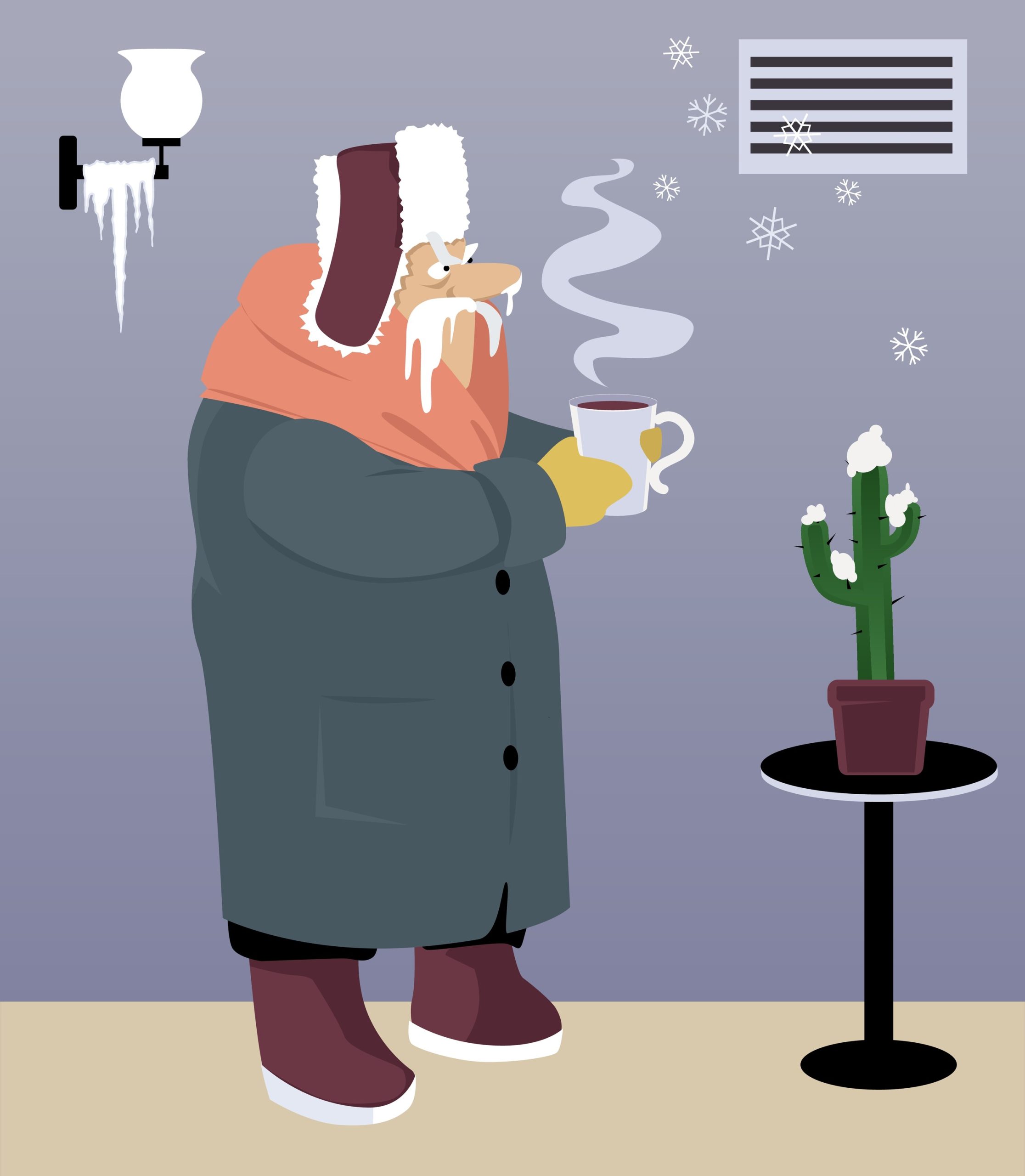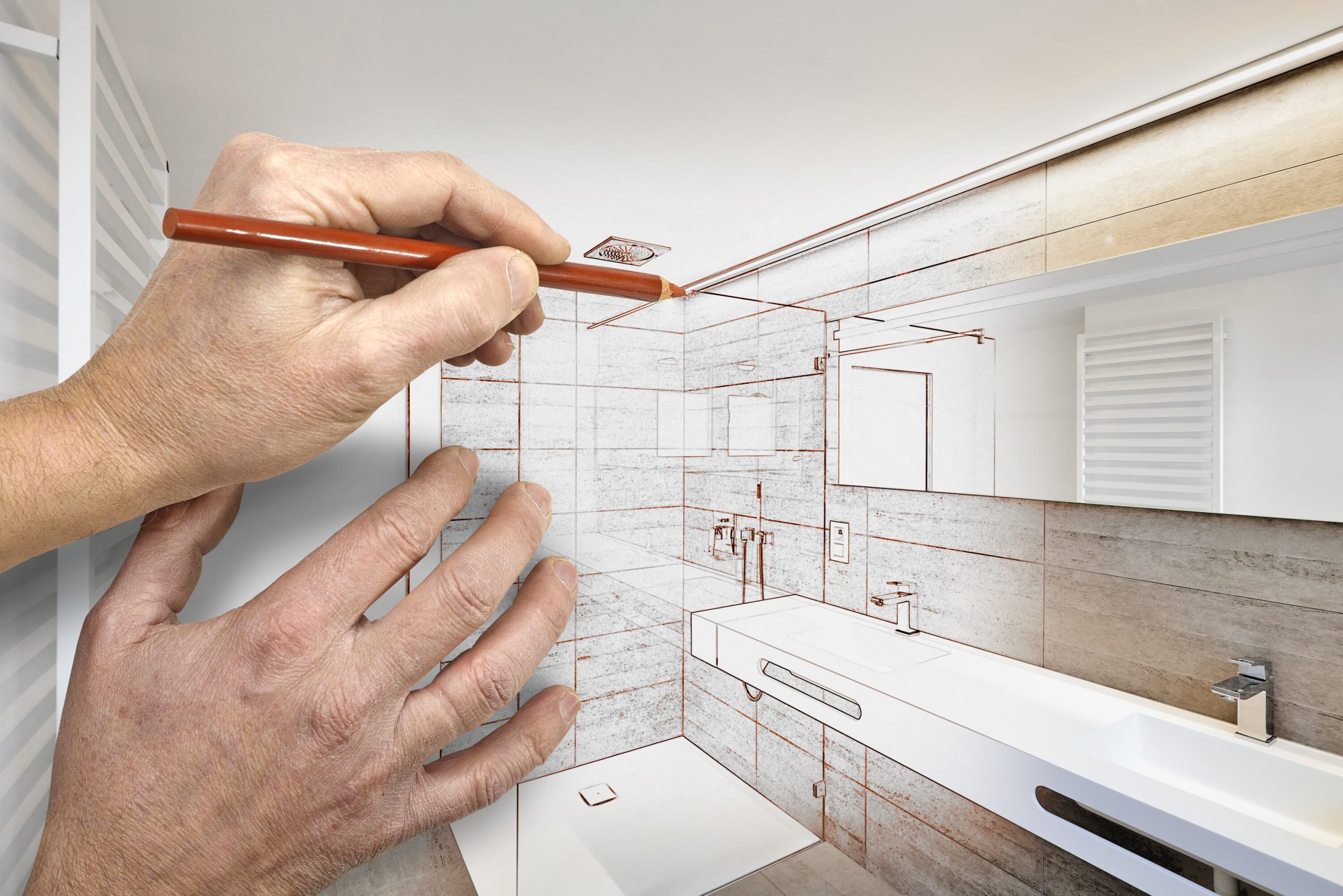
“Why Won’t My AC Unit Heat?”- How to Avoid Air Despair
The chill of winter has a certain beauty and charm when it first arrives. Crisp weather brings with it seasonal treats, a chance to break out comfy sweaters and warm boots, and the time to watch snow flurries and take walks without breaking a sweat. However, once the novelty wears off most people just want to be warm when they step indoors. It’s hard to sip cocoa and dream about the world being covered in a blanket of white snow if the heat is out and you’re left huddled under blankets trying to keep warm. If you’ve found yourself asking, “Why won’t my AC Unit Heat?”, here are some ways an HVAC system can fail in winter weather and what you can do to prevent this suboptimal, sub-zero scenario.
Why Won’t My AC Unit Heat? – Reasons for the Freezin’s
- An “Out of Order” Thermostat – Thermostats are the only way an HVAC system can gauge the indoor temperature of a home, and thus they are crucial to maintaining proper temperatures. When a thermostat is not functioning, the HVAC system may be missing vital info and may not be signaling to send heat into a too-cold house. If a thermostat is older, perhaps the same one you had when you moved into your home, it might be inaccurate and in need of replacement. Inaccurate thermostat readings also occur when furniture and decorations block airflow around the thermostat. (Side note: Never cover your thermostat with artwork!) Poor placement is also a culprit. The location of a thermostat is just as important as the thermostat itself for making sure it can get accurate temperature readings. Contact a local, licensed HVAC service provider for a proper diagnosis if you think your thermostat is the issue.
SEE ALSO: Where Should Your Home’s Thermostat Be Located?
- Dirty Outdoor Unit – Dirt, leaves, twigs, weeds, and even outdoor pests can all find their way into an outdoor air conditioner or heat pump unit. While a little grit and grime is to be expected, too much buildup can lead to poor performance and cause a unit to struggle to provide heat in the winter. Seasonal inspections and cleanings can go a long way to preventing problems like poor heating performance. It is a good habit to do a weekly visual inspection of an outdoor unit to make sure there’s nothing blocking the fan blades or blocking the air intake.
SEE ALSO: Maintenance Contracts for HVAC: Are They a Good Investment?
- Faltering Filters – In the same way a dirty outdoor unit can impede proper performance, dirty filters can also cause problems. The filters at each air return in your home must be replaced with a new, clean filter on a regular schedule to make sure airflow doesn’t get blocked and that unwanted particulates do not enter the HVAC system. Use your utility bill as a reminder each month to replace your filter.
SEE ALSO: Why Do I Need to Change My Home Air Filter?
- Pilot Light Plight – If you have a fossil furnace, predated to the nineties then this section is for you.Gas furnaces and boilers may rely on a pilot flame. This flame must be lit for the unit to provide heat, so make sure that it is burning bright. Consult your manual for the particular model installed in your home, and make sure to take care when it comes to natural gas safety. ExpressSewer.com recommends having a propane and natural gas detector and a carbon monoxide detector properly installed in your home to help prevent any dangers of being exposed to an unnoticed gas leak.
SEE ALSO: What to Do If Your Heater Goes Out This Winter
- Blower Motor Malfunction – The blower motor in an air conditioner is vital to the unit’s function. As its name implies, a blower motor blows the heated or cooled air into a home. Without it, the unit cannot function. Although blower motors are built to provide a long service life, problems with performance can crop up and must be addressed by a licensed service provider.
SEE ALSO: 7 Signs Your Home Needs a New HVAC System
- Ductwork Dilemmas – Sometimes your outdoor unit may not be to blame at all! Leaks or faults in the ductwork of a home can lead to poorly distributed air. Even at full power, an air conditioner, heat pump, furnace, or boiler will never be able to heat a home if all that heated air is escaping into the attic or crawl space due to a damaged duct. Homeowners with accessible ductwork can inspect the visible ducts to see if there are cracks, tears, or improperly attached bits of duct that are allowing air to escape. Please be careful if attempting to temporarily repair ductwork while you await a maintenance appointment, because the metal edges can be extremely sharp!
SEE ALSO: When Good Ductwork Goes Bad
- Refrigerant Reduction – Although it seems counterintuitive, heat pumps need refrigerant to provide heat to a home. In the summer, heat pumps cool a home by running hot air over extremely cold coils filled with a liquid chemical blend called refrigerant. Refrigerant extracts heat from the air, lowering the air temperature, and then returns it to the home. In the winter, a heat pump works in reverse, drawing heat from the outside air (even bitterly cold winter days are “warmer” than the refrigerant in the system), and using that to heat an indoor space. If there is a lack of refrigerant due to a leak or other failure, the system cannot work. This can lead to damage to the heat pump or higher energy bills as the heat pump attempts to compensate and works too hard.
SEE ALSO: Why Does My Air Conditioner Need More Freon?
Take Care in the Cold
Don’t get stuck wondering “Why won’t my AC unit heat?” The best bet against a cold weather catastrophe with your home’s air conditioning unit is simple: preventative maintenance. One of the most important steps in keeping your HVAC system functioning at peak performance year-round is scheduling regular cleaning and inspections with your local, licensed HVAC service provider.
HVAC technicians are able to clean an outdoor unit thoroughly without risking damage to any of the parts and can address any concerns you might have in regards to your HVAC system as a whole. They might suggest a different place for the home’s thermostat to be located, or even be able to provide options for upgrading an air conditioning unit to better provide heating to a home. With these tips in mind, you can enjoy a winter wonderland from the comfort of your perfectly warmed home.
SEE ALSO: Contact Us


